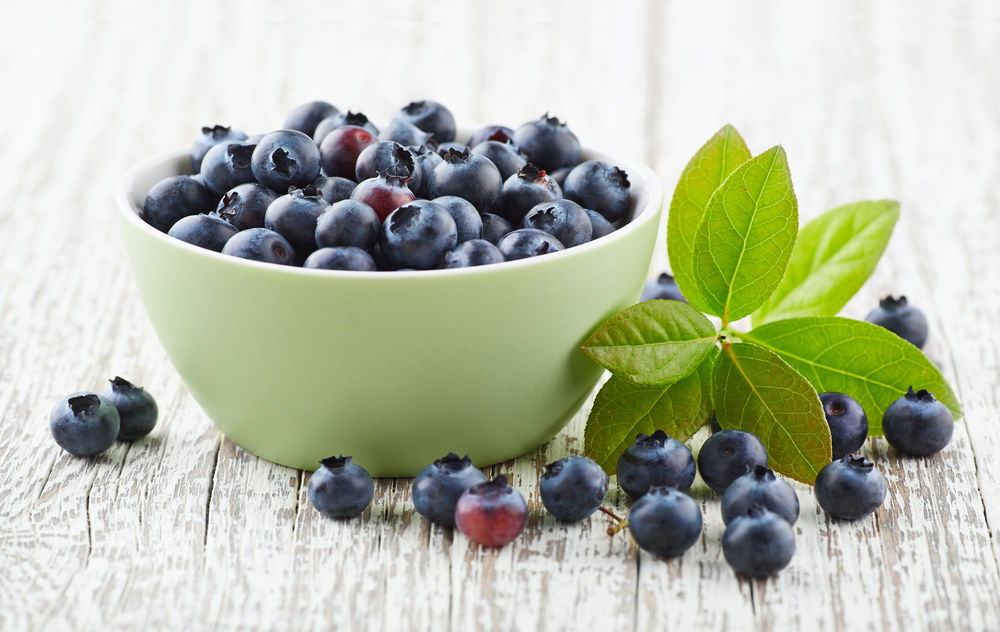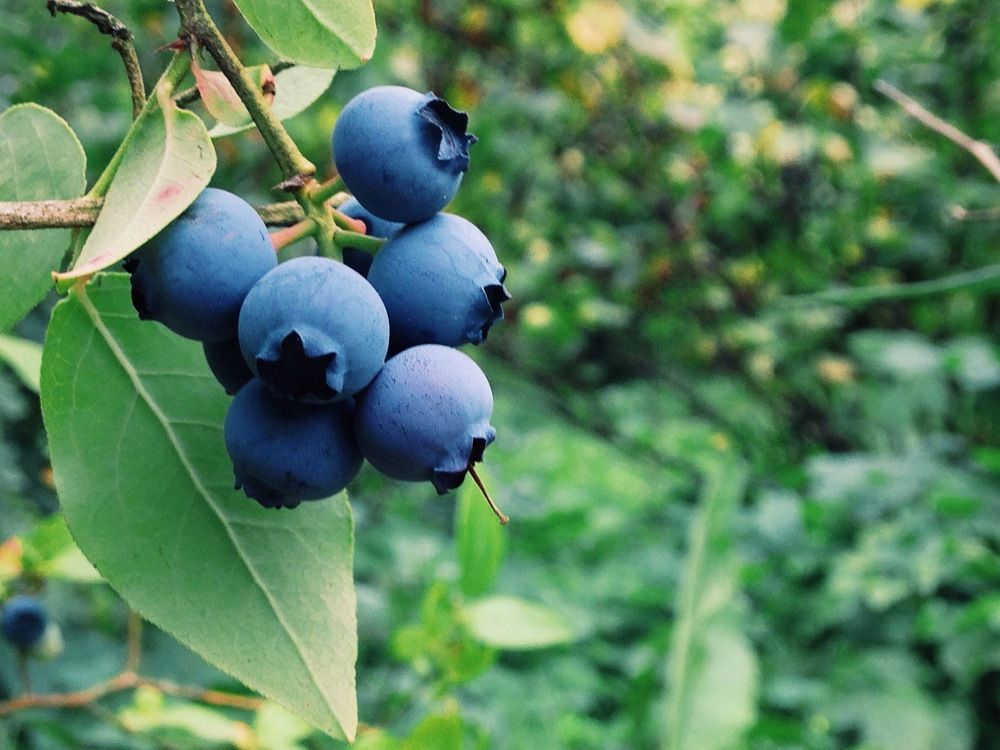Amazing Benefits of Blueberries for Brain Health

Blueberries are a fruit plant native to North America. In Indonesia, these fruits are rarely found at fruit merchant. They are typically only available in a few large supermarkets, and you usually encounter them in processed forms like jams or packaged drinks.
This tiny fruit grows in subtropical areas and is a part of the shrub family. Blueberries are related to cranberries and belong to the genus Vaccinium.
British Columbia is the largest highbush blueberry growing region in the world, making blueberries the most exported fruit from Canada.
About Blueberries (Flavor, Texture)
There are two types of blueberries, highbush and lowbush. Lowbush blueberries are smaller and sweeter than highbush blueberries.
The taste of blueberries is both tart and slightly sweet, making them a favorite fruit for many. Their flavor is somewhat reminiscent of red and green grapes, but a bit sweeter.
These berries have a purplish-blue color with juicy flesh and small seeds inside.
Blueberries are the only food that is truly naturally blue in color. The pigments responsible for this color are called anthocyanins.
The peak blueberry season in most countries runs from mid-June to mid-August. However, in Florida, the peak production season is in March and April.
Blueberries can be easily frozen while retaining their nutritional value and flavor, making them available year-round.
When consuming them, choose ripe, smooth, clean-skinned blueberries with a bright blue color. Avoid soft, wilted, or moldy berries. In addition to eating them fresh, you can mix blueberries into cakes, salads, or yogurt. You can also make them into juice or smoothies.
Facts and Benefits of Blueberries
Blueberries are rich in essential vitamins and minerals, including vitamin C, vitamin K, and manganese. Additionally, they contain fiber, antioxidants, and important flavonoid compounds for overall health.
The antioxidants found in blueberries can help prevent cell damage and maintain skin health. These antioxidants can also aid in preventing heart disease and cancer.
The flavonoid compounds in blueberries can enhance brain function and improve memory.
Blueberries are often referred to as the 'brain food' because they can enhance cognitive function and memory at all ages. Therefore, regularly consuming this flavonoid-rich fruit can slow down age-related memory disorders.
A handful of juicy blueberries (1/2 cup) contains only 44 calories but provides 2 grams of dietary fiber and 10 percent of the recommended daily intake of vitamin C.
A variety of essential nutrients in this fruit can prevent various serious diseases and promote overall health. Here are some brain benefits of blueberries when consumed regularly:
1. Reduces the Risk of Dementia
Cognitive function tends to decline with age, but it can be slowed down by following a plant-rich diet, such as including blueberries.
In a recent study, researchers found that healthy older individuals (aged 65 to 77) who consumed 30 milliliters of blueberry juice (equivalent to 230 grams of berries) showed significant improvements in brain activity, blood flow, and memory compared to those who did not consume it.
2. Reduces the Risk of Alzheimer's
The antioxidants in blueberries can provide real benefits in improving memory and cognitive function in older adults and potentially preventing Alzheimer's disease.
Alzheimer's is a form of dementia that affects the parts of the brain responsible for thinking, memory, and language.
A study conducted by the University of Cincinnati involved tests and brain scans on older adults who were beginning to show signs of mild cognitive impairment, a risk factor for Alzheimer's.
Participants were divided into two groups: one group received a placebo powder once a day for 16 weeks, while the others consumed freeze-dried blueberry powder (equivalent to one cup of berries). The adults who consumed blueberry powder showed improvements in memory and increased access to words and activities that enhanced brain function.
3. Enhancing Brain Cells
Adding blueberries to your diet can enhance the performance of brain cells in the hippocampus, the brain region responsible for memory.
A study conducted by the Agricultural Research Service (ARS) in 2002 involved feeding mice one cup of blueberries for two months. These mice exhibited improved memory through the hippocampus, which is one of the few brain areas that continually replaces neurons.
4. Improving Concentration and Memory
Consuming a bowl of blueberries can significantly improve concentration and memory five hours later. A 2009 study conducted at the University of Reading found that participants who had a blueberry smoothie in the morning performed much better in mental tasks in the mid-afternoon compared to those who had a different drink.
Those who didn't consume the blueberry smoothie saw a decrease in their performance by 15 to 20 percent. British researchers believe that the antioxidants in blueberries stimulate blood flow and oxygen to the brain, keeping the mind active.
5. Preventing Age-Related Memory Decline
Berries, such as blueberries, can help maintain a healthy brain through compounds that protect brain cells from free radicals. A study in 2012 showed that berries alter the way neurons in the brain communicate, as they prevent inflammation in the brain that can lead to neuronal damage and improve motor and cognitive control.
Blueberry Farming Tips
Growing blueberries requires careful attention to the specific conditions, as blueberries are not native to Indonesia. Blueberries thrive in regions with elevations ranging from 800 to 1,500 meters above sea level.

The suitable temperature range is between 15 to 22 degrees Celsius with humidity levels of 80 to 90 percent. These conditions are typically found in medium to high-altitude areas.
Blueberry plants can be propagated from seeds or stem cuttings. Seedlings from seeds have the advantage of strong root systems but may take a longer time to grow. Therefore, propagation through stem cuttings is more commonly used, as it yields a greater number of seedlings in a shorter time.
The land designated for planting blueberry seedlings should be prepared in advance. The purpose of soil preparation is to ensure that plant roots can grow and absorb nutrients effectively. Here are the steps for preparing the land for planting blueberries:
- Clear the land of wild grass and tree branches.
- Loosen the soil using a hoe or cultivator.
- Dig planting holes to a depth of 30 to 50 cm.
- Apply 25 kg of compost to each planting hole.
- After 7 days, the land is ready for planting.
Planting blueberries is quite simple, which involves placing the seedlings in the planting holes. Then, cover the holes with soil up to the base of the stems. The final step is to provide regular watering and care.
Some essential care methods for blueberries include:
- Watering
- Weed control
- Fertilization
- Pest and disease control
- Regular pruning
Blueberry plants can start bearing fruit at the age of 2 years. Blueberries bear fruit in clusters.
Harvesting blueberries is best done in the morning. Cut the fruit stems and detach the blueberries from the stems. (Nisa)
